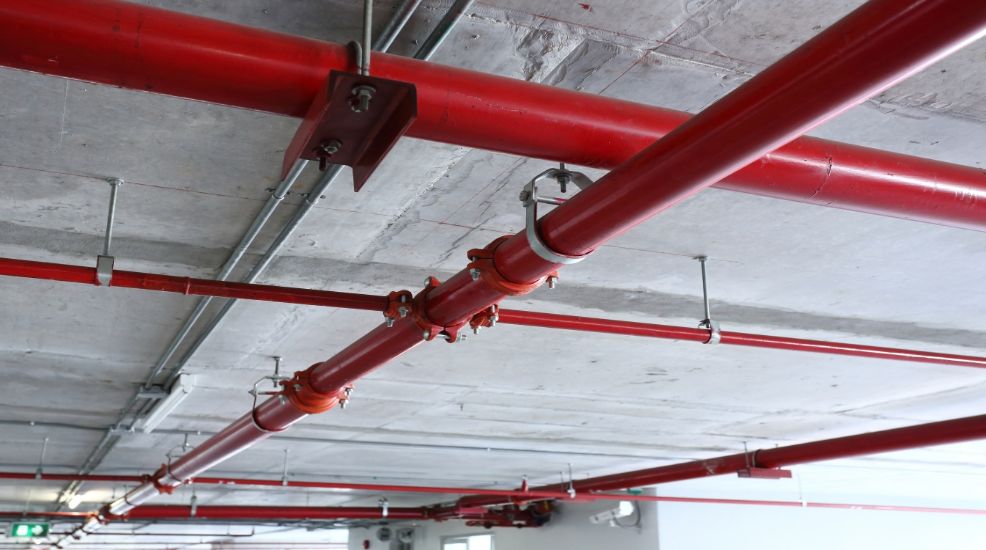
07 Apr Maintaining vs. Replacing Fire Detection Systems
Maintaining vs. Replacing Fire Detection Systems
Working fire detection systems are essential for the protection of people, premises, and for preventing the loss of valuables property in a building.
They are efficient in detecting the first stages of fire, enabling adequate time to safely evacuate people and inform the fire brigade to control the fire if they are properly maintained.
For fire detection systems to be trustworthy and perform as intended, they must be maintained in accordance with The Regulatory Reform (Fire Safety) Order 2005.
FIRE STRATEGY – ARE YOU ACCOUNTABLE? SPEAK TO AN EXPERT
Unfortunately, updating fire alarm systems is often overlooked, with many owners and building managers preferring to keep current systems operational as long as they possibly can rather than replace obsolete technology.
However, as a system ages, its efficacy decreases, which might have disastrous repercussions in the case a fire breaks out.
False alarms are also more likely with outdated systems, which may be expensive for businesses that get charged every time a fire engine is on site.
Regular fire alarm system audits and maintenance are the responsibility of fire service providers, but there is presently no legislation that specifies when outmoded equipment should be replaced. A compliance audit should be performed on a regular basis due to the structure and intricacy of numerous statutory requirements.
An audit for compliance will establish if the system is approaching or has passed its life cycle, as well as provide suggestions for the next stages.
Once a system becomes obsolete, it may be necessary to engage in capital expenditures to install new technology in order to remain compliant.
Leveraging Expenditure
The age of the equipment, irrelevant if it operates as expected, if it is serviceable, together with the availability of replacement parts are all important factors to consider when updating a system.
If replacing equipment is the sole option, consulting with a fire safety expert is the first step in establishing how to plan for the implementation of replacement equipment, and the procedure necessary to fulfil the site’s compliance standards.
A multi-story structure, for example, could decide to improve the equipment one floor at a time.
Whilst a fire alarm system may still function, it might not do so to its full potential. An out-of-date, malfunctioning system may be harmful in a variety of ways.
For example, increased sensitivity of a smoke sensor may sometimes result in false alarms, which can be expensive and cause buildings to be disrupted needlessly.
D.S.E.A.R – DANGEROUS SUBSTANCES AND EXPLOSIVE ATMOSPHERES REGULATIONS. SPEAK TO AN EXPERT
Reduced sensitivity may also slow down the identification of a fire break-out as well as the time it takes for the fire brigade to arrive to put out the fire.
Another aspect is the environment and location in which the smoke detectors are located. For example, a sensor put in a sandy, dusty or unclean environment could have a shorter life than one installed in a sterile and clean environment.
Communication vital part of organising the servicing of fire alarms, especially when the law differs, producing uncertainty when The Regulatory Reform (Fire Safety) Order 2005 is applied differently depending on the premises.
Owners and building managers should speak with their fire safety provider to learn when the system is approaching the decline stage and what choices are available for replacement.
Modern fire alarm technology not only meets current regulations, but also offers significant advantages, such as the ability to integrate with building automation and control systems, making it easier for fire service providers to access building information, perform routine maintenance remotely, and locate people in an emergency.
The newest technologies also make sensor data and reporting more transparent.
If your premises require a fire detection systems audit, My Fire’s team of experts can inspect fire alarm systems to make sure that they are functioning properly, meet compliance requirements, and also make recommendations for equipment upgrades.
Contact the My Fire team at 0800 999 11 25 for further information and help.
Dangerous Substances and Explosive Atmospheres Regulations 2002 (DSEAR) click here.
If you would like to arrange a free fire risk consultation, contact us
My Fire Safety. Co-Space, 25 Town Square,
Stevenage, SG1 1BP. 0800 999 11 25






Sorry, the comment form is closed at this time.